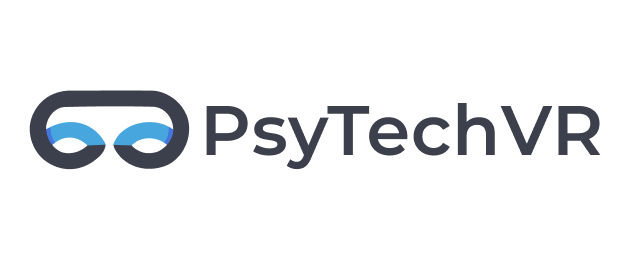Blog - VRET
Facing the Fear of Dogs.
How to Overcome Cynophobia?
By Inna Maltzeva, Clinical Research Specialist
May 09, 2025
Understanding Cynophobia and Its Causes
Millions of people around the world tend to have rather severe reactions when in close proximity with a dog – with anxiety attacks, heart rate increases, and more. Such a fear of dogs is a genuine psychological response known as cynophobia. A lot of people tend to experience some form of discomfort around unfamiliar dogs, but people with true cynophobia encounter life-altering limitations that affect their day-to-day lives. Our goal here is to explore the reality of dog-related fears, providing insights into their causes, manifestations, and treatment.
What is Cynophobia?
Cynophobia is the fear of dogs – a specific phobia that causes avoidance behavior and intense anxiety in people when they are positioned near dogs. The symptoms of cynophobia can even manifest when people in question think about dogs, as well. It is not uncommon for this fear to be so severe it causes significant stress in daily life, routinely interfering with daily activities.

Unlike general caution around unfamiliar animals, cynophobia is known for its combination of intensity and irrationality. The fear response is known to occur regardless of a dog’s size, temperament, or breed. For those affected, there is practically no distinction between harmless and dangerous dogs, replaced with an overwhelming sense of danger. Such categorical fear is what separates cynophobia from reasonable caution that most people tend to experience around unfamiliar animals in general.
Mental health professionals tend to diagnose cynophobia when such a fear persists for 6 months or longer, while substantially interfering with normal day-to-day lives. The condition is a part of the family of specific phobias noted down in the Diagnostic and Statistical Manual of Mental Disorders, also known as DSM-5 – alongside fears of flying, heights, and enclosed spaces. The exact prevalence of specific phobias remains very difficult to measure accurately, it is common to assume that specific animal phobias affect about 5% of the population, with dog phobias being one of the most common.
Mental health professionals tend to diagnose cynophobia when such a fear persists for 6 months or longer, while substantially interfering with normal day-to-day lives. The condition is a part of the family of specific phobias noted down in the Diagnostic and Statistical Manual of Mental Disorders, also known as DSM-5 – alongside fears of flying, heights, and enclosed spaces. The exact prevalence of specific phobias remains very difficult to measure accurately, it is common to assume that specific animal phobias affect about 5% of the population, with dog phobias being one of the most common.
Causes and Risk Factors of Cynophobia
Cynophobia is a somewhat common phobia that can develop for a number of reasons:
Research indicates that the fear response of the brain plays a large role in the development of cynophobia. Patients with this phobia tend to show a heightened amygdala activity (which is the brain region responsible for processing fear) when exposed to dog-related stimuli. This neurological component can explain why some individuals can still develop intense fears even with absolutely no history of dog attacks in the first place.
- Genetic predisposition to anxiety;
- Traumatic experience involving dogs;
- Learned behavior from a friend or family member.
Research indicates that the fear response of the brain plays a large role in the development of cynophobia. Patients with this phobia tend to show a heightened amygdala activity (which is the brain region responsible for processing fear) when exposed to dog-related stimuli. This neurological component can explain why some individuals can still develop intense fears even with absolutely no history of dog attacks in the first place.

Family history is also an important factor here – for example, it is not uncommon for one of the identical twins to have a higher likelihood of developing the same phobia their sibling has, suggesting that both shared environmental influences and genetic factors play into the emergence of afflictions such as cynophobia.
Common Triggers of Dog-Related Fear
Dog-related fears tend to center around specific triggers that activate the phobic response. For many cynophobia-afflicted individuals, these triggers may include distinct sounds of panting and growling, unleashed dogs in public spaces, direct eye contact with dogs, or unexpected barking. The general size of the dog also matters a lot here – with larger breeds provoking stronger fear responses due to the higher degree of perceived threat. However, there are also some people that have a paradoxical fear of smaller dogs, specifically due to their high-pitched barks, unpredictable movements, etc.
There are also some physical characteristics that might intensify the overall fear response, such as certain coat colors, prominent teeth, or even specific breeds that are usually associated culturally with aggression. Environmental context plays its own important role here – encountering dogs in narrow spaces tends to intensify anxiety compared with seeing the same animal in a public park. A good understanding of these personal triggers is what helps mental health specialists create an effective treatment, as therapy tends to begin by discovering specific fear cues before anything else.
There are also some physical characteristics that might intensify the overall fear response, such as certain coat colors, prominent teeth, or even specific breeds that are usually associated culturally with aggression. Environmental context plays its own important role here – encountering dogs in narrow spaces tends to intensify anxiety compared with seeing the same animal in a public park. A good understanding of these personal triggers is what helps mental health specialists create an effective treatment, as therapy tends to begin by discovering specific fear cues before anything else.
Connection Between Cynophobia and Other Phobias or Conditions
It is quite common for cynophobia to appear alongside one or several other afflictions in the same field. In most cases, these additional phobias are related to natural environments and other animals aside from dogs. Such a clustering effect gives context to what kind of underlying mechanisms our brains use to deal with perceived threats. Individuals with cynophobia also tend to show higher percentages of social anxiety, panic disorder, and generalized anxiety disorder than the general population.
Childhood experiences tend to have a strong effect on the development of phobias, in general. Early traumatic experiences do not even have to be about dogs specifically – a general feeling of helplessness or lack of control is usually enough to predispose someone to develop multiple phobias years later, including fear of dogs.
Conditions such as Post-Traumatic Stress Disorder also tend to have a very strong amplifying effect on the risk of cynophobia, as the hypervigilance state associated with trauma is where specific fears can take root with ease. This knowledge tends to help mental health professionals develop more holistic treatment approaches, addressing the full spectrum of anxiety responses instead of focusing on a single specific fear.
Childhood experiences tend to have a strong effect on the development of phobias, in general. Early traumatic experiences do not even have to be about dogs specifically – a general feeling of helplessness or lack of control is usually enough to predispose someone to develop multiple phobias years later, including fear of dogs.
Conditions such as Post-Traumatic Stress Disorder also tend to have a very strong amplifying effect on the risk of cynophobia, as the hypervigilance state associated with trauma is where specific fears can take root with ease. This knowledge tends to help mental health professionals develop more holistic treatment approaches, addressing the full spectrum of anxiety responses instead of focusing on a single specific fear.
Recognizing the Signs of Cynophobia
Cynophobia is not just a basic discomfort – it manifests through distinct patterns of emotional, physical, and behavioral responses. Being able to recognize these signs early on helps people address the phobia in some way before it becomes deeply entangled with a person’s daily life. A better understanding of all the symptoms also provides validation to affected people that these responses are not weaknesses but genuine psychological reactions that deserve proper treatment and compassionate attention.
Emotional and Physical Symptoms
When confronted with dogs, people with cynophobia experience a massive cascade of physical symptoms that their autonomic nervous system triggers. The body becomes flooded with adrenaline, causing shallow breathing, trembling limbs, racing heartbeat, and excessive sweating – all of which are considered completely standard signs of the “fight or flight response.” Digestive disturbances are also quite common in this context, with stomach cramps, nausea, and even vomiting in some cases. All these physical manifestations tend to arise involuntarily, which makes cynophobia far more than just a simple preference to avoid dogs.

The emotional side of the topic is just as distressing, characterized by an intense feeling of dread that feels completely disproportionate to any rational danger assessment. Individuals with cynophobia also tend to report a profound sense of losing control, accompanied by racing thoughts with a sharp focus on worst-case scenarios. A catastrophic thinking pattern creates overwhelming panic that feels impossible to manage using willpower alone. Many people with cynophobia also feel deeply embarrassed by their reactions, especially when there are other people witnessing their distress, which creates a second anxiety layer about the fear itself.
Impact on Daily Life
Cynophobia can significantly impact daily life and cause intense anxiety and avoidance behavior in those affected. The fear of dogs can limit a person's ability to participate in activities that involve dogs, such as visiting friends or family members with pets, going for walks in the park, or even going to the vet, leading to feelings of isolation and decreased quality of life.
Additionally, the fear of dogs can interfere with daily routines, such as grocery shopping or taking public transportation, if there is a chance of encountering a dog. This can cause significant stress and anxiety for the individual, leading to avoidance of certain places or situations and reduced ability to carry out daily activities.
In extreme cases, cynophobia can have a negative impact on employment and personal relationships, as well as physical and mental health. It is crucial for individuals with a fear of dogs to seek help and find a way to overcome it to improve their daily life and increase their overall well-being. With effective therapy and support, it is possible to reduce and eliminate the fear of dogs and live a fulfilling life without fear.
Additionally, the fear of dogs can interfere with daily routines, such as grocery shopping or taking public transportation, if there is a chance of encountering a dog. This can cause significant stress and anxiety for the individual, leading to avoidance of certain places or situations and reduced ability to carry out daily activities.
In extreme cases, cynophobia can have a negative impact on employment and personal relationships, as well as physical and mental health. It is crucial for individuals with a fear of dogs to seek help and find a way to overcome it to improve their daily life and increase their overall well-being. With effective therapy and support, it is possible to reduce and eliminate the fear of dogs and live a fulfilling life without fear.

Early Warning Signs
Early detection of cynophobia begins with noticing subtle avoidance behaviors that intensify as time goes on. It might even begin with relatively minor events, such as creating excuses to leave gatherings where dogs are present, or taking longer routes to avoid houses with dogs. Such behaviors often emerge before the person can fully recognize such fear as problematic, which makes them valuable indicators that should be noticed by friends and family.
Intrusive thoughts about dogs are another important warning sign, especially when they tend to persist outside of actual encounters. Someone developing cynophobia may report unwanted mental images of being attacked or persistent worry about unexpected dog encounters during routine activities. Young children may express such fears using drawings of scary dogs or refusing to engage with dog-themed shows or books. Recognizing such cognitive patterns early on makes intervention a lot easier – before the fear response becomes automatic and deeply conditioned.
Intrusive thoughts about dogs are another important warning sign, especially when they tend to persist outside of actual encounters. Someone developing cynophobia may report unwanted mental images of being attacked or persistent worry about unexpected dog encounters during routine activities. Young children may express such fears using drawings of scary dogs or refusing to engage with dog-themed shows or books. Recognizing such cognitive patterns early on makes intervention a lot easier – before the fear response becomes automatic and deeply conditioned.
Cynophobia Treatment Approaches
The process of overcoming cynophobia is a confrontation of your deeply ingrained neural pathways and conditioned emotional responses that grow stronger with every instance of avoidance behavior. This complexity is recognized by modern treatment approaches, employing evidence-based techniques that attempt to gradually rewire the brain’s response to dog-related stimuli. Complete elimination of fear may not be on the table for everyone, but there is a strong degree of consistency in modern treatments that offer significant recovery, allowing individuals to dramatically reduce the influence of such anxiety on many people. Most paths toward overcoming dog-related fears usually include a combination of personalized strategies and professional guidance with the unique experience of each individual in mind.

Professional Treatment Options
Traditional instruments for overcoming phobias, such as cynophobia, include therapy and medication. These approaches have been proven effective in reducing the symptoms of phobias and helping individuals overcome their fears.
Successful treatment of cynophobia mostly hinges on finding the right professional support – with specialization in phobia treatment and anxiety disorders. Mental health professionals tend to begin with a thorough assessment to understand the severity, triggers, and impact of the phobia before proceeding. Once the evaluation is complete, a personalized treatment plan is created, combining multiple approaches for the highest degree of efficiency.
The therapeutic alliance plays a strong role in the success of the treatment. A relationship between a therapist and a client helps create a safe environment where patients are free to express their fears without any judgment. Such a foundation of trust is particularly important when treatment starts using exposure methods where clients actually have to feel secure enough to start confronting their fears in the first place. As such, experts recommend conducting interviews for potential therapists about their experience with phobias before committing to a treatment in order to ensure that their approach can align with a client’s personal needs and communication preferences.
Successful treatment of cynophobia mostly hinges on finding the right professional support – with specialization in phobia treatment and anxiety disorders. Mental health professionals tend to begin with a thorough assessment to understand the severity, triggers, and impact of the phobia before proceeding. Once the evaluation is complete, a personalized treatment plan is created, combining multiple approaches for the highest degree of efficiency.
The therapeutic alliance plays a strong role in the success of the treatment. A relationship between a therapist and a client helps create a safe environment where patients are free to express their fears without any judgment. Such a foundation of trust is particularly important when treatment starts using exposure methods where clients actually have to feel secure enough to start confronting their fears in the first place. As such, experts recommend conducting interviews for potential therapists about their experience with phobias before committing to a treatment in order to ensure that their approach can align with a client’s personal needs and communication preferences.
Therapy Methods for Cynophobia
Outside of well-established approaches such as exposure treatment and cognitive behavioral treatment, there are a few more methods that have shown promise for addressing cynophobia and similar issues. Schema therapy attempts to explore how early life experiences affect emotions, creating fear responses (especially effective for individuals whose dog fears are connected with deeper issues from childhood).
Acceptance and Commitment Therapy takes a slightly different approach, assisting individuals with mindful observation of their fears without judgment while clarifying personal values that can motivate recovery, with less focus on eliminating anxiety and more on pursuing meaningful activities despite the presence of anxiety.
For children with cynophobia, play therapy helps create a non-threatening environment to help with processing dog-related fears using symbolic representation and storytelling. It allows young children without complex verbal skills to express and work through their anxieties. Family-based interventions are also particularly powerful, especially if parents were the reason for a child’s fear being reinforced through their own anxious responses to begin with.
All these approaches recognize the highly personalized nature of phobia treatment, necessitating flexibility and a combination of methodologies to address the conscious and unconscious aspects of fear to create lasting change.
Acceptance and Commitment Therapy takes a slightly different approach, assisting individuals with mindful observation of their fears without judgment while clarifying personal values that can motivate recovery, with less focus on eliminating anxiety and more on pursuing meaningful activities despite the presence of anxiety.
For children with cynophobia, play therapy helps create a non-threatening environment to help with processing dog-related fears using symbolic representation and storytelling. It allows young children without complex verbal skills to express and work through their anxieties. Family-based interventions are also particularly powerful, especially if parents were the reason for a child’s fear being reinforced through their own anxious responses to begin with.
All these approaches recognize the highly personalized nature of phobia treatment, necessitating flexibility and a combination of methodologies to address the conscious and unconscious aspects of fear to create lasting change.
Cognitive Behavioral Therapy (CBT)
Cognitive Behavioral Therapy is a well-known method of dealing with phobias that has earned itself quite a reputation over the years. CBT helps patients address the thought patterns and behaviors that contribute to the fear and anxiety that phobias are usually associated with. During CBT, individuals are supposed to work together with a therapist in order to identify and challenge their negative beliefs or thought patterns in order to learn coping skills or techniques to best manage their anxiety.

A structured and goal-oriented approach is the primary advantage of CBT. A regular session usually involves the therapist and patient working together to look for and challenge negative thoughts, replacing them with more realistic and positive ones. Such therapy also provides homework assignments with practical activities – all to reinforce the skills and techniques learned in therapy.
CBT has a lot of research papers written about it, with a lot of documented evidence about its effectiveness. A meta-analysis of more than 400 studies from the National Institute for Health and Care Excellence found that CBT is surprisingly effective in reducing the symptoms of anxiety, depression, and other mental health conditions. Additionally, all these benefits have been shown to last for a long time – going up to several decades after the therapy course has been completed.
It is a well-established and evidence-based psychotherapy method that has managed to show its wide range of use cases, and its average effectiveness combined with several decades of lasting effect make it a valuable option for individuals looking for ways to improve their psychological and emotional well-being.
CBT has a lot of research papers written about it, with a lot of documented evidence about its effectiveness. A meta-analysis of more than 400 studies from the National Institute for Health and Care Excellence found that CBT is surprisingly effective in reducing the symptoms of anxiety, depression, and other mental health conditions. Additionally, all these benefits have been shown to last for a long time – going up to several decades after the therapy course has been completed.
It is a well-established and evidence-based psychotherapy method that has managed to show its wide range of use cases, and its average effectiveness combined with several decades of lasting effect make it a valuable option for individuals looking for ways to improve their psychological and emotional well-being.
Exposure Therapy
Exposure therapy is another well-known treatment approach to various phobias. It uses gradual exposure to each person’s specific stimuli in a safe and controlled environment, helping patients gradually overcome their fears by facing them and learning to cope with their anxieties. Exposure therapy can also be conducted both in traditional therapeutic environments and with the help of virtual reality technology.
For cynophobia specifically, exposure therapy follows a carefully formed hierarchy of dog-related situations, starting from the least anxiety-provoking examples. A typical progression may start with nothing but looking at photographs of friendly dogs, followed by videos with no sound, followed by videos with sound, etc. As the level of comfort increases, the individual may observe dogs from a safe distance in real life, gradually decreasing the distance between themselves and dogs over multiple sessions. In most cases, the final stages of the exposure treatment for cynophobia involve being in the same room as a calm and well-trained dog, with a possibility of a brief physical contact under careful supervision.
The effectiveness of exposure therapy stems primarily from its neurobiological impact on fear processing. Our brains can actually update its threat assessments over time as they encounter a feared stimulus without experiencing any kind of anticipated catastrophic outcome. Each successful exposure tends to weaken the association between dogs and danger while also building new neural pathways for the feelings of safety and control. Exposure therapy has a high possibility of success according to many researches over the years, with many patients experiencing substantial improvements within less than a dozen sessions if all the necessary protocols have been followed consistently.
For cynophobia specifically, exposure therapy follows a carefully formed hierarchy of dog-related situations, starting from the least anxiety-provoking examples. A typical progression may start with nothing but looking at photographs of friendly dogs, followed by videos with no sound, followed by videos with sound, etc. As the level of comfort increases, the individual may observe dogs from a safe distance in real life, gradually decreasing the distance between themselves and dogs over multiple sessions. In most cases, the final stages of the exposure treatment for cynophobia involve being in the same room as a calm and well-trained dog, with a possibility of a brief physical contact under careful supervision.
The effectiveness of exposure therapy stems primarily from its neurobiological impact on fear processing. Our brains can actually update its threat assessments over time as they encounter a feared stimulus without experiencing any kind of anticipated catastrophic outcome. Each successful exposure tends to weaken the association between dogs and danger while also building new neural pathways for the feelings of safety and control. Exposure therapy has a high possibility of success according to many researches over the years, with many patients experiencing substantial improvements within less than a dozen sessions if all the necessary protocols have been followed consistently.

Choosing the Right Mental Health Professional
Finding the right specialist for treating cynophobia would require looking beyond general credentials in order to identify professionals with specific expertise in treating anxieties and disorders. Ideal candidates would include psychiatrists, clinical psychologists, and licensed therapists with specialized training in cognitive-behavioral approaches and exposure therapy methods. If there is an option to interview potential providers, it is recommended to ask about their experience in specific phobias, their familiarity with the latest approaches, and their comfort level with facilitating exposure work.
The overall treatment philosophy matters a lot, considering how ones that rely more on a collaborative approach also tend to achieve better outcomes. Practical considerations also influence the success of the treatment, though. As such, it is important to select a therapist who is located in a comfortable range away from you, and verify whether the professional would be able to accommodate real-world exposure sessions outside of the office when necessary.
There are also many individuals that find greater success working with therapists offering teletherapy options – they are particularly valuable in early treatment to help avoid triggering anxieties by simply leaving the home environment. The most important factor here is the therapeutic relationship with the client – if you do not feel respected or understood in an initial consultation, it is highly recommended to continue your search elsewhere.
The overall treatment philosophy matters a lot, considering how ones that rely more on a collaborative approach also tend to achieve better outcomes. Practical considerations also influence the success of the treatment, though. As such, it is important to select a therapist who is located in a comfortable range away from you, and verify whether the professional would be able to accommodate real-world exposure sessions outside of the office when necessary.
There are also many individuals that find greater success working with therapists offering teletherapy options – they are particularly valuable in early treatment to help avoid triggering anxieties by simply leaving the home environment. The most important factor here is the therapeutic relationship with the client – if you do not feel respected or understood in an initial consultation, it is highly recommended to continue your search elsewhere.
Self-Help and Coping Strategies
While professional treatment provides the most direct path toward overcoming cynophobia, daily self-management techniques can also be particularly helpful during and after therapy. Practical strategies like these can help empower individuals to gradually try to reclaim control over their responses to feared stimuli, rebuilding confidence in situations previously dominated by fear. The most effective recovery journeys are always a combination of professional guidance and consistent self-help practices, generating several different ways to rewire the brain’s fear response while establishing new patterns of thinking and behaving around dogs.

Relaxation and Mindfulness Techniques
The body’s fear response to dogs manifests through obvious physical symptoms that are quickly escalating into overwhelming panic. Diaphragmatic breathing is particularly effective in such situations, shifting respiration from quick and shallow chest breaths to deeper, abdominal breathing that helps activate the parasympathetic nervous system.
Combining this method with mindfulness approaches trains individuals to observe their thoughts about dogs without becoming entangled by them. Instead of fighting against fear (which often only increases anxiety), mindfulness helps cultivate the ability to acknowledge anxious thoughts while creating psychological distance from them, disrupting the automatic patterns that tend to fuel phobic responses.
Combining this method with mindfulness approaches trains individuals to observe their thoughts about dogs without becoming entangled by them. Instead of fighting against fear (which often only increases anxiety), mindfulness helps cultivate the ability to acknowledge anxious thoughts while creating psychological distance from them, disrupting the automatic patterns that tend to fuel phobic responses.
Building Support Systems
Recovery from cynophobia accelerates drastically with supportive relationships that balance gentle encouragement and empathy. Trustworthy friends or family members can accompany a person during graduated exposure exercises without reinforcing avoidance behaviors or minimizing fear responses.
Online communities specifically for phobia recovery can also be the source of connections with others on similar journeys, helps normalize the experience and offer practical strategies from those further along in recovery. Parents of children with cynophobia benefit particularly from professional guidance on balancing protection with encouraging gradual exposure – since overprotection tends to inadvertently strengthen avoidance patterns despite well-meaning intentions.
Online communities specifically for phobia recovery can also be the source of connections with others on similar journeys, helps normalize the experience and offer practical strategies from those further along in recovery. Parents of children with cynophobia benefit particularly from professional guidance on balancing protection with encouraging gradual exposure – since overprotection tends to inadvertently strengthen avoidance patterns despite well-meaning intentions.
Virtual Reality Therapy for Cynophobia
With the advent of new technology, Virtual Reality Exposure Therapy (VRET) has emerged as a new and innovative form of treatment.
VRET uses virtual reality technology to immerse patients in simulations of real-life scenarios that trigger their anxiety or phobia. The therapy aims to help individuals confront their fears and anxiety in a controlled and safe environment, thereby reducing their symptoms.
VRET uses virtual reality technology to immerse patients in simulations of real-life scenarios that trigger their anxiety or phobia. The therapy aims to help individuals confront their fears and anxiety in a controlled and safe environment, thereby reducing their symptoms.
How VR Supports Exposure Therapy
Virtual Reality Exposure Therapy is a modern form of psychotherapy that helps individuals confront their anxieties and fears in a controlled and safe environment using the assistance of virtual reality technology. VRET managed to gain a lot of attention in recent years, showing impressive results when it comes to treating all kinds of mental health conditions – PTSD, various phobias, and more.

VRET is commonly considered to be far more immersive than any other type of exposure-based therapy, including Imaginal Exposure. Imaginal Exposure is when patients are asked to visualize or imagine scenarios with fear triggers by themselves, while VRET allows patients to become immersed in an environment with a lot less effort altogether. Such a high degree of immersion helps medical experts create VR experiences that are far more vivid and immersive than ever before, helping patients better process their emotions and work toward reducing their symptoms.
Real-life exposure therapy also has a considerably lower degree of control and safety when compared with VRET. One of the biggest reasons for that is a drastically higher number of “supported” fears and phobias than traditional exposure therapy. For example, creating an exposure therapy session for a person with a fear of flying is incredibly difficult with any other method aside from VRET.
The fact that all virtual environments can also be fine-tuned on the go to manage the degree of personalization and intensity makes it even more impressive. Another impressive advantage of virtual reality in exposure therapy is its engagement and interactivity capabilities – something that any traditional exposure-based therapy does not have whatsoever.
Real-life exposure therapy also has a considerably lower degree of control and safety when compared with VRET. One of the biggest reasons for that is a drastically higher number of “supported” fears and phobias than traditional exposure therapy. For example, creating an exposure therapy session for a person with a fear of flying is incredibly difficult with any other method aside from VRET.
The fact that all virtual environments can also be fine-tuned on the go to manage the degree of personalization and intensity makes it even more impressive. Another impressive advantage of virtual reality in exposure therapy is its engagement and interactivity capabilities – something that any traditional exposure-based therapy does not have whatsoever.

Using PsyTechVR for Cynophobia
PsyTechVR provides virtual reality solutions to not only mental health professionals but also HRs, and educational institutions. Our primary focus is all about developing and delivering VRET software against phobias and anxiety disorders, including arachnophobia, cynophobia, and many others.
One of our primary therapy developments attempts to help therapists identify and change their patients' negative behaviors and thoughts that contribute to psychological and emotional distress using cognitive behavioral therapy. CBT has been proven effective in overcoming all kinds of medical conditions, such as depression, anxiety, PTSD, obsessive-compulsive disorders, and more.
PsyTechVR uses virtual reality simulations for psychologists to help their patients to control and overcome anxieties in a safe and controlled environment. It involves gradual exposure of a patient to progressively challenging virtual environments, helping them process and overcome their negative emotions.
One of our primary therapy developments attempts to help therapists identify and change their patients' negative behaviors and thoughts that contribute to psychological and emotional distress using cognitive behavioral therapy. CBT has been proven effective in overcoming all kinds of medical conditions, such as depression, anxiety, PTSD, obsessive-compulsive disorders, and more.
PsyTechVR uses virtual reality simulations for psychologists to help their patients to control and overcome anxieties in a safe and controlled environment. It involves gradual exposure of a patient to progressively challenging virtual environments, helping them process and overcome their negative emotions.
A substantial advantage of PsyTechVR is the fact that it can be done in the comfort of a client's home, as well – providing a high level of convenience and privacy when they are needed.
PsyTechVR’s software is not just a scary game with playable environments as the means to overcome phobias – it is a complex system that uses an academic approach to overcoming anxieties and many other kinds of mental disorders.
PsyTechVR’s software is not just a scary game with playable environments as the means to overcome phobias – it is a complex system that uses an academic approach to overcoming anxieties and many other kinds of mental disorders.
Is VR Technology affordable in 2026?
Virtual Reality as a technology has become far more affordable now than ever before. There are several different reasons on why that happened:
- Advancements in both software and hardware that led to more cost-effective production, reducing the total cost of VR headsets.
- Substantial number of VR companies entering the market, leading to more competition and the reduction in consumer pricing.
- Recent releases of more affordable headsets (Pico 4, Meta Quest 3) made VR even more accessible to consumers, removing the necessity of a high-end gaming PC for VR to work in the first place. The baseline for VR technology now is as low as just a few hundred dollars.
- The rise of subscription-based models in gaming platforms and VR arcades made the technology more accessible, as well, removing the necessity to purchase the VR headset at all. PsyTechVR also provides a subscription-based approach – cheaper than a single visit to a mental health specialist, available for everyday use with no limitations.
What headset should I choose for training with PsyTechVR?
- Meta Quest 3 is a headset that works in both Virtual and Augmented reality, developed by Meta. It offers a wide FOV and a transparent display with the ability to see the real world and the digital content at the same time.
- Pico 4 is a standalone VR headset for consumers, acting as an all-in-one option with no need for an additional power source in the form of a gaming console or a separate computer.
- HTC Focus 3 is a VR headset from the technology company HTC, offering a standalone VR experience with six degrees of freedom, inside-out tracking, and an abundance of other features.


Complete VR Package for $1599 *
Buying options
PsyTechVR Bundle
Your VR headset
Book a DEMO to get a 15-day FREE TRIAL, then use your own VR device or order a Meta Quest separately
15-day Free Trial, then $120/month
Includes the latest Meta Quest 3s, 12-month access, regular updates, support, training, and marketing materials
* Limited time offer until product is in stock
VR Bundle
Special offer: 35% off Storewide
$
1,599
$
2,499
- Latest Meta Quest 3s (128GB) VR Headset with the installed VR app
- 12-Month Access to PsyTechVR Platforms
- Generative-AI to create exposure scenarios
- Dedicated Support Manager
- Comprehensive 4-Hour Training & Certificate
- Exclusive Marketing Materials for your website and social media
*VR headset will belong to you with full access to the VR app store
VR and Anxiety disorders
Frequently Asked Questions
Can cynophobia develop later in life?
Cynophobia can technically develop at any age, not just in childhood. Traumatic encounters with dogs, consuming media about dangerous dogs, and witnessing dog attacks can all be potential triggers for cynophobia in adults with zero previous fear history.
Is fear of dogs more common in children?
Children do tend to experience significantly higher rates of dog-related fears than adults, with roughly every fourth child on average showing significant anxiety around unfamiliar dogs. The biggest factors for such a massive percentage include children’s smaller size relative to most dogs, as well as their still-developing ability to interpret animal behavior cues correctly.
How do I know if my fear is a phobia or just discomfort?
Normal discomfort around unfamiliar dogs does not significantly impact your daily life and cannot cause intense physical symptoms like panic attacks. However, cynophobia does involve disproportionate fear that persists regardless of the dog’s behavior, leading to significant limitations to a person’s activities and extreme avoidance behaviors.
How many sessions are typically needed?
Most individuals with cynophobia seem to achieve significant improvements after about a dozen sessions in virtual reality exposure therapy. The exact number varies greatly depending on many different circumstances, and it is completely possible for specific patients to take twice as long to achieve meaningful results.
Can I combine VR therapy with traditional therapy?
A lot of therapists suggest doing so in the first place – combining VRET with traditional therapy methods. Virtual reality’s exposure can help accelerate progress in controlled practice scenarios, while cognitive behavioral techniques help manage thoughts and beliefs that maintain the fear.
Thanks for reading!
Inna Maltzeva
Clinical Research Specialist
Inna is the Clinical Research Specialist, standing at the forefront of integration between psychotherapeutic sessions and virtual reality environments. She has been invaluable in developing various VR-based technologies to improve the efficiency of emotional and cognitive training, considering the limitations of traditional exposure therapy. Her own research focuses on the utilization of immersive environments that can treat phobias, anxiety disorders, and Post-Traumatic Stress Disorder. She also works in tandem with a team of experts in their own fields, designing VR scenarios that can facilitate adaptive coping strategies in order to help each client manage their fears in a supportive and fully controlled environment.
Inna has a degree in psychology and linguistics, with her education being completed at the Moscow Psychological and Social Institute and the Moscow State Linguistic University. Her expertise was further advanced using specialized training in CBT, EMDR, and psychoanalysis, with credentials from various esteemed institutions: the European EMDR Association and the Cognitive-Behavioral Therapy Association of Saint Petersburg. The extensive professional experience has shaped her work in a significant manner, including both working as a clinical psychologist and also maintaining a thriving private practice afterward (with in-person and online therapy sessions).
Her own work in the VR company extends far beyond traditional research since she also contributes to the creation of evidence-based therapeutic programs that are tailored to assist with different psychological conditions. She managed to play a substantial role in shaping VR applications in relaxation practices and anxiety disorder therapy, combining cutting-edge technology with various psychological principles.
Inna has a degree in psychology and linguistics, with her education being completed at the Moscow Psychological and Social Institute and the Moscow State Linguistic University. Her expertise was further advanced using specialized training in CBT, EMDR, and psychoanalysis, with credentials from various esteemed institutions: the European EMDR Association and the Cognitive-Behavioral Therapy Association of Saint Petersburg. The extensive professional experience has shaped her work in a significant manner, including both working as a clinical psychologist and also maintaining a thriving private practice afterward (with in-person and online therapy sessions).
Her own work in the VR company extends far beyond traditional research since she also contributes to the creation of evidence-based therapeutic programs that are tailored to assist with different psychological conditions. She managed to play a substantial role in shaping VR applications in relaxation practices and anxiety disorder therapy, combining cutting-edge technology with various psychological principles.
Inna Maltseva is a psychologist and psychotherapist with over 18 years of experience in the fields of EMDR and CBT (Eye Movement Desensitization and Reprocessing and Cognitive Behavioral Therapy, respectively).

Read more about PsyTechVR
We publish articles on phobias, mental health, upcoming events, and special offers
| | Get in touch We're ready to lead you into the future of mental health Sending this information you agree to share your personal information according and limited by our confidentiality statement. |

Welcome!
We're excited to offer you the chance to experience the power of PsyTech VR with a FREE Trial!




 PsyTechVR
PsyTechVR




